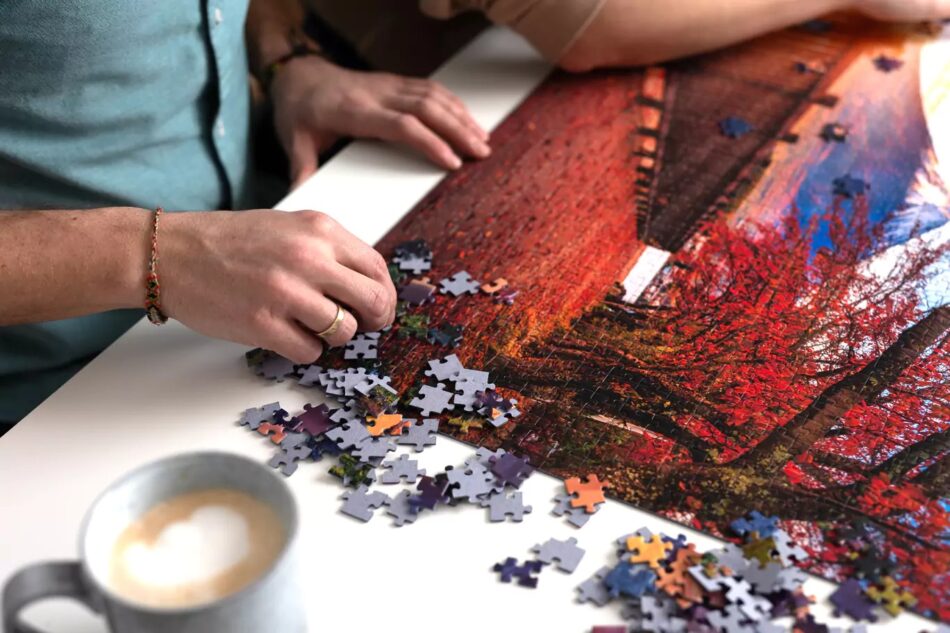A good nighttime routine is all about slowing down. After a long day, your body and brain need a break from loud sounds, bright screens, and constant tasks. Many people turn to reading, light cleaning, or quiet music. But more adults are starting to add puzzling to their evening hours because it’s peaceful, it doesn’t rely on technology, and it gives your hands and eyes something calming to focus on.
If you’re looking for a new way to unwind before bed, here’s why puzzles, especially beautiful puzzles made from sturdy wood, can become a regular and helpful part of your nighttime routine.
It Helps You Step Away from Screens
Most people spend hours a day looking at screens. Work, texts, videos, and social media fill the hours until bedtime. But too much screen time before sleep can make it harder to fall asleep or stay asleep. Blue light from phones and TVs tells your brain to stay awake.
That’s why hands-on, screen-free activities are better in the evening. A puzzle doesn’t light up, buzz, or demand replies. You can sit at a table, sort a few pieces, and focus on one small thing at a time. With quality puzzles, the process feels even more satisfying because the pieces are smooth, strong, and cleanly cut. Something is grounding about that feeling.
It Slows Your Brain Without Making You Bored
Not everyone likes sitting still and meditating. Some people need a little motion to unwind. That’s where puzzles are a great fit. You’re thinking, but in a calm, slow way. You look for colors, match shapes, and place pieces one by one. There’s no pressure, no time limit, and no noise.
If you choose puzzles with interesting artwork, it’s easy to get drawn in. You’re not solving a complex problem or rushing to win. You’re just putting something together piece by piece. That focus helps your mind shift from work mode to rest mode.
Over time, this kind of routine can signal your body that it’s time to slow down for the night.
It Sets a Stopping Point for the Day
One challenge with modern life is that there’s always something else to do. A new email, another episode, one more scroll. But that kind of habit can stretch bedtime later and later. A puzzle gives you a healthy stopping point.
You sit down, build for 20 or 30 minutes, and when you finish a small section or reach a natural break, you stop. There’s no “just one more” alert or loud cliffhanger. It’s quiet, self-paced, and easy to put away.
Many fans of quality puzzles say they look forward to this time at the end of the day because it creates a simple close.
You Don’t Need a Lot of Time or Space
You don’t need hours to get something out of puzzling. Even 10–15 minutes can help shift your energy from busy to relaxed. The best part? You don’t have to finish anything. Just building a few pieces can be enough to calm your mind.
You also don’t need a huge setup. A small table in a corner or part of your kitchen counter can become your puzzle spot. Many beautiful puzzles come in compact sizes that work well for tight spaces. Some people even use puzzle boards or trays to keep everything contained and easy to put away when needed.
It Creates a Routine You Can Actually Stick With
A good nighttime routine only works if you enjoy it. That’s why puzzles work so well. They’re simple, quiet, and low-pressure. You don’t need special skills. You don’t need new tools. You just need the puzzle, a table, and a bit of time.
Once you find a few puzzles you like, it becomes easier to stick to the habit. You’ll start to look forward to it. It becomes a gentle signal to slow down, focus on something peaceful, and wind down the day in a way that feels good.
Conclusion
Puzzling at night isn’t about finishing anything. It’s about shifting gears, mentally and physically, so your brain can settle down and your body knows it’s time to rest. With the correct puzzle, you’re not just filling time. You’re setting the tone for better evenings and better sleep.
 WhatsApp Us Now
WhatsApp Us Now







